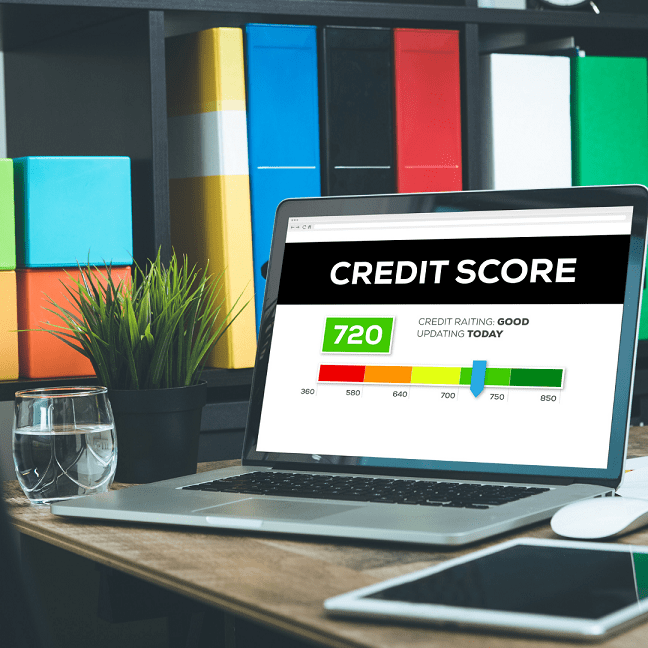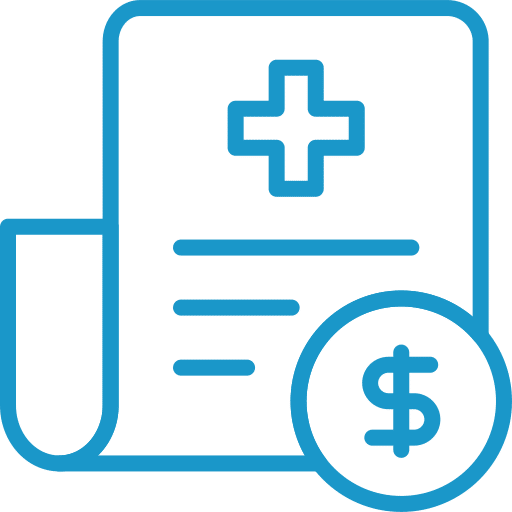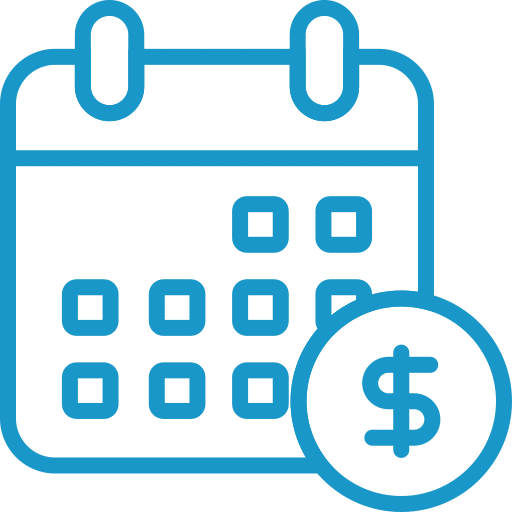Best Personal Loans for Good Credit in 2025
Get pre-qualified for a personal loan in just minutes. Checking rates won’t affect your credit score







How to Find the Best Personal Loan for Good Credit in April, 2025
Unlike loans for homes or cars, which serve specific purposes, personal loans can be used for anything. Some people take out personal loans to pay medical bills, start new businesses, or cover urgent repairs. Having a “good” credit score puts you in good standing to get a personal loan – your score is above average, and you’ve proven you’re a reliable person to lend to.
That said, you still need to go into getting a new personal loan with your eyes open to ensure you get the best rates you can.
Applying for a personal loan with good credit is fast and easy:
Compare personal loan rates
Compare personal loan rates in April, 2025
What is a personal loan for good credit?
A personal loan gives you a lump sum of money which can range from $1,000 to $50,000. Having good credit often means you’ll get lower annual percentage rates and better terms on personal loans. Personal loans for good credit are usually unsecured – in other words, you’re not required to put up collateral like your savings, car, or home. Instead, lenders evaluate your ability to repay by looking at things like your credit, income, and any existing debt.
What is considered a good credit score?
A good credit score typically falls within the range of 670 to 739, according to widely used credit scoring models like the FICO Score. While credit score ranges may vary slightly depending on the scoring model and the institution using it, a score in this range generally indicates a solid credit history and demonstrates creditworthiness to lenders.
Can you get a personal loan with good credit?
A good credit score puts you in good standing to secure a personal loan. You’ll be able to get average-to-good rates and borrow more (depending on your income), though it does depend on your current credit utilization. Credit utilization is how much of the available credit you have in total you’ve used.
For example, if you have $10,000 credit available across all your credit cards, and you’ve only got a balance totaling $1,000, your credit utilization is 10%. It’s recommended to keep your utilization close to 30%. If your utilization is high, especially in tandem with your income, you may struggle to secure an additional loan.
What are the pros and cons of personal loans for good credit?
PROS
- It’s flexible: some loans, like motor and mortgage loans, can only be used for specific purposes. You can use personal loans for many purposes, whether you need to pay off a medical bill or cover a major purchase. The main draw here is that you can use the money how you like without becoming locked into how you use it.
- Personal loans often incur a lower interest rate than credit cards. As of February this year, the average personal loan rate was as low as 11.84 percent, whereas the average credit card rate was 04 percent. If you have an excellent credit history, you may qualify for personal loan rates between six and eight percent.
- Personal loans are easier to manage than a few credit cards with different interest rates and payment due dates. If you qualify for a personal loan with a lower interest rate than your credit cards, you can streamline your monthly payments and save some money in the process.
- You’ll pay off the loan in the defined timeframe – one of the biggest pros of a personal loan is if your terms are to pay it off in 5 years, you will pay it off in 5 years. Credit cards can quickly become a trap of paying off and reusing, so you’re never out of debt, but personal loans ensure you pay it off.
- You know exactly what it’s going to cost you – you know upfront how much the loan will cost you over the lifetime of the loan.
CONS
- You don’t have payment flexibility – the pro and con of a credit card is you can choose what to pay above the minimum, and the minimum payment is usually affordable (unless you’ve got yourself into some trouble). A personal loan has a fixed fee, which if you’ve stretched yourself financially for the loan, can be a lot of money to find when you need it.
- You need to be strict if you consolidate debt – using a personal loan to consolidate credit card debt can be the key to getting debt-free in the future, but only if you put those credit cards somewhere you can’t access them. Many people end up using credit cards again and dig themselves deep into debt.
- Personal loans sometimes involve fees and penalties, such as origination fees of one to six percent of the total loan amount. These fees cover loan processing and can be included in the loan total or subtracted from the amount you get as the borrower. Surprisingly, certain lenders also charge prepayment penalties if you pay off the full balance before your loan term ends.
Quick links

Ready to apply for a good credit personal loan? Get started today.
Need help finding the right loan?
No worries, we've got you covered! Compare personalized loan options in just minutes.
Are there other types of loans are available to people with good credit?
Aside from personal loans, those with good credit can also apply for home equity loans, auto loans, student loans, and mortgages. You can also borrow money from:
- Credit cards and credit card cash advances
- Overdrafts
- Personal lines of credit
What interest rates can I expect on a personal loan with a credit score between 670 and 739?
A: Interest rates for personal loans can vary depending on multiple factors, including credit score, loan amount, loan term, and the lender's policies. While it's difficult to provide an exact range, individuals with credit scores in this range may receive interest rates that are somewhat higher than those with excellent credit. It's recommended to shop around and compare offers from different lenders to find the most competitive interest rates available.
Personal Loan Payment Calculator
Total Payment
-
Total Interest
-
Monthly Payment
-
Ready to apply for a personal loan?
Compare rates from top lenders with no impact on your credit, ever.
5 tips for improving your credit score
Here are five things you can do to improve your credit score:
Pay your bills on time: Payment history is one of the most important factors in determining your credit score. Make sure to pay all your bills, including credit cards, loans, and utilities, on time. Late payments can have a negative impact on your credit score, so set up reminders or automatic payments to ensure timely payments.
Reduce credit card balances: High credit card balances can negatively affect your credit utilization ratio, which compares your credit card balances to your credit limits. Aim to keep your credit card utilization below 30% to improve your credit score. Paying down balances or spreading them across multiple cards can help lower your utilization ratio.
Maintain a diverse credit mix: Having a mix of different types of credit, such as credit cards, installment loans, and mortgages, can positively impact your credit score. It demonstrates your ability to handle different types of debt responsibly. However, only take on new credit when necessary and manage it responsibly.
Avoid opening unnecessary new accounts: While a diverse credit mix is beneficial, avoid opening multiple new accounts in a short period. Each new application results in a hard inquiry on your credit report, which can temporarily lower your score. Only apply for credit when you genuinely need it and carefully consider the impact on your credit.
Regularly check your credit report: Monitor your credit report regularly for accuracy and signs of potential fraud. You can request a free copy of your credit report from each of the three major credit bureaus once a year through AnnualCreditReport.com. Review the report for errors or unauthorized accounts and promptly report any issues to the credit bureaus.
Compare loan options for good and excellent credit:
- 680 Credit Score Personal Loans
- 700 Credit Score Personal Loans
- 750 Credit Score Personal Loans
- 800 Credit Score Personal Loans
Browse personal loans by amount:
- $5k Personal Loans
- $10k Personal Loans
- $25k Personal Loans
- $35k Personal Loans
- $50k Personal Loans
- $75k Personal Loans
- $100k Personal Loans
Additional resources
Federal Trade Commission (FTC): The FTC is a U.S. government agency that focuses on consumer protection. They provide guidance on various financial topics, including personal loans. You can find information on understanding personal loans and tips for borrowing wisely on their website.
U.S. Small Business Administration (SBA): Although primarily focused on assisting small businesses, the SBA offers resources and information on personal loans for business purposes. It can be helpful for entrepreneurs seeking loans to fund their ventures.
Consumer Financial Protection Bureau (CFPB): The CFPB is another U.S. government agency that provides consumer financial information and resources. They cover various aspects of personal loans, including understanding loan terms, comparing offers, and avoiding scams.
Compare personal loans & apply
Before you take out a personal loan, plan how you’ll use and repay the money, taking interest into account. Use the comparison tables here to look for which lenders are offering the best rates and terms for you, and don’t forget to look for additional fees and terms that may make one more favorable than another. When you find the right loan for you, all you need to do is apply.
Compare personal loan rates
How Pasha Funding Works

Personal Loans for Every Occasion
Find Your Best Rate
Compare Best Personal Loans
Personal Loan Payoff Calculator
Personal Loan Lender Reviews
Personal Loans By Credit
Personal Loans for Fair Credit
Personal Loans for Good Credit
Personal Loans for Excellent Credit
Personal Loan Types
Auto Repair Loans
Credit Card Consolidation Loans
Fast Personal Loans
Home Improvement Loans
Horse Barn Financing
Wedding Loans
Family Planning Loans
Funeral Financing
Land Purchase Financing
Manufactured Home Financing
Medical Loans
Cosmetic & Plastic Surgery Financing
Owner Builder Construction Loans
Personal Loans for House Down Payment
Personal Loans for Self Employed
Personal Loans for Furniture Expenses
Student Loans
Debt Consolidation Loans
Vacation & Travel Loans
Emergency Personal Loans
Personal Loans with Co-signers
Home Improvement Financing
Appliance Financing
Bathroom Remodel Financing
Basement Remodel Financing
Boat Dock Loans
Deck Financing
Driveway Paving Financing
Fence Financing
Flooring Financing
Furnace Financing
Garage Financing
Home Addition Financing
Hot Tub Financing
HVAC Financing
Home Insulation Financing
Interior & Exterior Painting Financing
Kitchen Remodel Financing
Kitchen Cabinet Financing
Pole Barn Financing
Roof Financing
Solar Panel Financing
Swimming Pool Financing
Sunroom Addition Loans
Window Replacement Financing
Loan rate & terms disclosure: Prequalified rates are based on the information you provide and a soft credit inquiry. Receiving prequalified rates does not guarantee that the Lender will extend you an offer of credit. You are not yet approved for a loan or a specific rate. All credit decisions, including loan approval, if any, are determined by Lenders, in their sole discretion. Rates and terms are subject to change without notice. Rates from Lenders may differ from prequalified rates due to factors which may include, but are not limited to: (i) changes in your personal credit circumstances; (ii) additional information in your hard credit pull and/or additional information you provide (or are unable to provide) to the Lender during the underwriting process; and/or (iii) changes in APRs (e.g., an increase in the rate index between the time of prequalification and the time of application or loan closing. (Or, if the loan option is a variable rate loan, then the interest rate index used to set the APR is subject to increases or decreases at any time). Lenders reserve the right to change or withdraw the prequalified rates at any time.
Requesting prequalified rates on Credible is free and doesn't affect your credit score. However, applying for or closing a loan will involve a hard credit pull that impacts your credit score and closing a loan will result in costs to you.









